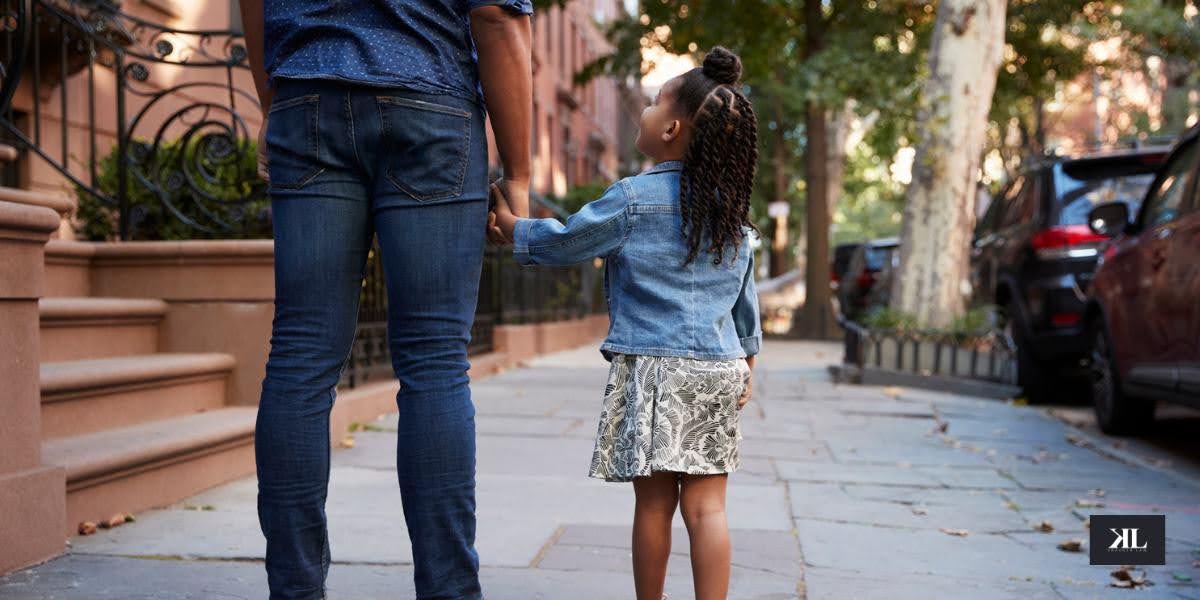Understanding child custody laws in New York is crucial for any parent entering the court system. Whether you’re filing for custody for the first time, modifying an existing order, or responding to a claim, knowing the legal framework behind custody decisions can help you make informed choices and advocate for your child’s best interests.
In this blog, we’ll walk through the key New York statutes, court procedures, and legal definitions that govern custody, and explain how they may impact your parenting rights.
What Does Child Custody Mean in New York?
When you’re going through a custody case, one of the first things you’ll hear is the term “custody.” But what does that actually mean under New York law?
In simple terms, child custody is about who gets to make decisions for your child and where your child will live. In New York, custody is defined by two key state laws:
- Domestic Relations Law (DRL) § 70
- Family Court Act (FCA) § 651
These laws say that both parents have equal rights to seek custody, no matter if they were ever married or not. So, whether you’re a mother or a father, or whether you lived with the other parent or not, you can ask the court for custody. The court won’t automatically favor one parent over the other, it will always focus on what’s best for the child.
Now, let’s break custody down into two different types you need to know:
1. Legal Custody
Legal custody means the right to make major decisions in your child’s life. This includes choices about:
- Education (where they go to school)
- Medical care (doctors, treatments, therapy)
- Religious upbringing (if and how religion is practiced)
- Other major life choices like extracurriculars or changing schools
You can have sole legal custody (where only one parent makes the big decisions), or joint legal custody (where both parents have to agree together). Judges usually prefer joint legal custody if both parents can communicate and work together, even if they don’t live in the same home.
What happens if we share legal custody but disagree? If you can’t agree, the court may step in or ask you to try mediation. But in general, joint legal custody works best when both parents can cooperate, even if they don’t always see eye to eye.
2. Physical Custody
Physical custody is about where your child lives and who takes care of them on a day-to-day basis. This includes things like meals, getting to school, and handling the bedtime routine.
Like legal custody, physical custody can be sole or joint:
- Sole physical custody: The child lives with one parent most of the time. The other parent may have visitation rights.
- Joint physical custody: The child splits time between both parents, usually on a schedule. This doesn’t always mean a 50/50 split, but it does mean both parents have significant time with the child.
If I get joint custody, does that mean I’ll have my child half the time? Not necessarily. Joint custody doesn’t always mean an even split. The court will approve a schedule that makes the most sense for your child’s routine, schooling, and overall well-being. Sometimes that’s a 50/50 schedule, but not always.
Can One Parent Have Sole Custody of Both Types?
Yes, that can happen. A judge might award sole legal and physical custody to one parent if the other parent is unable or unwilling to be involved in the child’s life. This could be due to:
- A history of abuse or neglect
- Substance abuse
- Unstable living conditions
- Long absences or lack of involvement
Even then, the other parent may still be allowed supervised visitation, unless the court believes it would harm the child.
Understanding the difference between legal and physical custody helps you know what to expect and what you might ask for in court. These two types can be combined in different ways, depending on what’s best for your child. For example:
- One parent might have sole legal custody, but both parents share physical custody.
- Both parents might share legal custody, but the child lives mostly with one parent.
Every case is different. What matters most to the judge is what will support your child’s health, stability, and happiness.
Still have questions about child custody laws in New York or what type of custody might apply to your case? Contact us at Krasner Law and we’ll help you understand your options and build the strongest case for your family.
How Do New York Courts Decide Who Gets Custody?
If you’re getting ready for a custody hearing, one of the most important things to understand is how judges make their decisions. Unlike child support, which uses a clear formula, child custody laws in New York don’t have a strict equation or checklist.
Instead, judges use something called the “best interests of the child” standard. This approach is designed to give the judge flexibility to look at the unique details of your situation and decide what’s truly best for your child, not just what might seem fair for the parents.
What Does “Best Interests of the Child” Actually Mean?
This term sounds simple, but it covers a lot. It means the judge will look at all the factors that affect your child’s well-being, emotionally, physically, socially, and academically.
Even though the phrase isn’t directly defined in the law, it’s been shaped over time by court decisions. A key case that helped define it in New York is Friederwitzer v. Friederwitzer (1982), which said that custody decisions should always be guided by the child’s needs, not the parents’ personal desires or who earns more money.
What Factors Do Judges Consider?
Every custody case is different, so the court takes a broad look at your family’s circumstances. Some of the main things judges will consider include:
The emotional and physical needs of the child
Is your child healthy and safe? Are their emotional needs being met at home and at school?
Each parent’s ability to meet those needs
This includes your parenting skills, availability, and ability to provide food, shelter, clothing, and love.
Stability of each home environment
Does the child have a consistent routine in your home? Are they in a familiar school or neighborhood? Stability matters a lot, especially for younger children.
The child’s preferences
If your child is old enough and mature enough, the judge may take their wishes into account. This doesn’t mean the child gets to choose, but their opinion can play a role, especially for older teens.
Each parent’s willingness to support the other parent’s relationship with the child
Are you encouraging your child to have a good relationship with the other parent, or are you trying to block contact? Courts prefer parents who support healthy co-parenting.
Any history of domestic violence, neglect, or substance abuse
If there are serious safety concerns, like physical abuse, emotional manipulation, or drug use, the court will put the child’s protection first.
Will the court automatically choose the mother? No. Under New York law, there is no automatic preference for either parent. The court treats both parents equally and focuses only on what is best for the child.
Do Judges Always Choose Joint Custody?
Not always. While courts often favor joint legal custody (where both parents share in big decisions), that only works if the parents can communicate and cooperate. If the relationship is full of conflict or if there’s a history of abuse, the court may decide that one parent should have sole custody, either legal, physical, or both.
What if I want joint custody but we don’t get along? If communication between you and your co-parent is very poor, it may be hard to make joint custody work. The judge may suggest co-parenting classes or recommend another arrangement that limits direct contact while still keeping both parents involved in the child’s life.
Can a Parent’s Job Affect Custody?
Yes, but it’s only one part of the big picture. Judges understand that many parents have demanding jobs or non-traditional work hours. What matters is whether your job allows you to be consistently present in your child’s life and meet their needs.
If one parent travels a lot for work or has an unpredictable schedule, that might affect how physical custody is arranged. But it doesn’t mean that parent can’t have joint legal custody or generous visitation time.
Does a Child Have to Testify?
Not usually. In most cases, children don’t testify in open court. Instead, if the court wants to hear the child’s perspective, the judge may:
- Speak to the child privately (called an in-camera interview)
- Appoint an Attorney for the Child, who represents the child’s interests in the case
This helps protect the child from unnecessary stress while still allowing their voice to be heard.
In New York, custody decisions aren’t about choosing sides, they’re about choosing what’s best for the child. The judge will carefully consider every detail of your child’s life and each parent’s ability to meet their needs.
That’s why it’s so important to come to court prepared. Be honest, show how you’re involved in your child’s daily life, and focus on cooperation, not conflict. Judges want to see that both parents are putting the child first.
Still have questions about how child custody laws in New York apply to your situation? The team at Krasner Law is here to help. Contact us today to get trusted legal advice and compassionate guidance tailored to your family’s needs.
Filing for Custody in New York: What to Expect
Starting a custody case can feel intimidating, but understanding the steps can help you feel more in control. Whether you’re just separating, already divorced, or never married your child’s other parent, New York law gives you a way to ask the court for legal and physical custody.
Let’s break down exactly how the custody filing process works, what paperwork is involved, and what you can expect once your case is in motion.
Where Do You File for Custody?
In New York, you’ll typically file your custody case in Family Court, unless your case is part of a divorce. If you’re going through a divorce, custody will be handled in Supreme Court along with everything else (like property division and spousal support).
The main law that governs custody filings is Family Court Act (FCA) § 651, which gives the court authority to hear custody and visitation cases.
Do I need a lawyer to file for custody? You don’t have to have a lawyer, but it can be really helpful, especially if your case is contested, complex, or involves concerns about abuse, relocation, or disagreements over school, religion, or healthcare.
What Goes Into a Custody Petition?
To start the process, you’ll need to file a custody petition. This is a written document that tells the court what kind of custody you’re asking for and why.
Your petition should include:
- A description of the current custody situation- Who the child lives with now, what the parenting routine looks like, and how involved each parent is.
- The type of custody you’re seeking- Are you asking for joint custody, sole custody, or something in between? Be clear about both legal and physical custody.
- Why your request is in the child’s best interests- This is your chance to explain how your proposed arrangement would benefit your child emotionally, physically, and academically.
Once the petition is filed, the court will serve the other parent (meaning they’ll be officially notified), and a court date will be set.
What Happens After You File?
After both sides are notified and a date is scheduled, here’s what to expect:
1. Court Hearings Begin
At the first court appearance (often called a “return date”), both parents will appear before a judge. If both of you agree on a custody arrangement, the judge may approve your agreement and issue a custody order.
If you don’t agree, your case will continue through more hearings, and the judge may set up a schedule to gather more information.
2. Each Parent Can Present Evidence
Both parents will get the opportunity to explain their side. You can provide documents, photos, text messages, witness statements, and anything else that supports your case.
The court may ask questions like:
- What is your day-to-day parenting routine?
- Who takes the child to school or doctor appointments?
- How well do you communicate with the other parent?
3. An Attorney for the Child May Be Appointed
In contested cases, especially when there’s conflict or older children involved, the court may appoint an Attorney for the Child (formerly called a Law Guardian). This person represents your child’s interests, not either parent’s.
They’ll speak with the child, meet with both parents, and sometimes make recommendations to the court.
4. A Forensic Evaluation May Be Ordered
If the case is high-conflict or there are concerns about parenting ability, mental health, or home environment, the judge may order a forensic evaluation. This is done by a licensed psychologist or mental health expert.
The evaluator may:
- Interview the parents and the child
- Visit each parent’s home
- Review records from schools, doctors, or therapists
The evaluator will write a report and give it to the court to help the judge make a decision.
Temporary and Emergency Custody Orders
Sometimes, you can’t wait for the entire custody case to be resolved, especially if your child’s safety or stability is at risk. That’s where temporary and emergency custody come in.
Temporary Custody
While the case is pending, either parent can ask the judge for a temporary custody order. This is common in situations like:
- A recent separation
- One parent moved out suddenly
- You need structure and clarity while you wait for a final ruling
Temporary orders create a set schedule for parenting time and decision-making until the final order is issued. These are based on what’s best for the child in the short term.
If I get temporary custody, will I keep it permanently? Not necessarily. Temporary orders are meant to hold things steady during the case. The final custody order could be different depending on how things develop, what the court learns, and what’s best for the child long-term.
Emergency Custody
If there is an immediate risk to your child, like abuse, neglect, or danger in the home, you can request emergency custody under FCA § 1027.
In these situations, the court may:
- Hold an emergency hearing right away
- Make a temporary decision without notifying the other parent (this is called ex parte)
- Issue a protective order or supervised visitation order
Emergency custody orders are serious and fast-moving. You’ll need strong evidence, like police reports, medical records, or witness statements, to show that the child is in danger.
What happens after an emergency order is granted? A full hearing will be scheduled shortly after so both parents can present their sides. Emergency orders don’t last forever, they’re just a way to protect the child until a more complete hearing takes place.
Filing for custody in New York can be an emotional and complicated process, but you don’t have to go through it alone. Understanding how to file a petition, what happens in court, and how temporary or emergency custody works puts you in a stronger position to advocate for your child.
Modifying an Existing Custody Order in New York
Life doesn’t stand still, especially when you’re raising a child. Jobs change, families move, kids grow up, and sometimes the original custody order just doesn’t work anymore. Fortunately, child custody laws in New York allow parents to request a change, but there are specific rules you’ll need to follow.
Once a judge issues a custody order, it remains in place until one or both parents request a modification, and the court agrees it’s necessary. You can’t change the agreement just because you’re unhappy with it or because it feels unfair. You need to show the court that something major has changed.
What Counts as a “Substantial Change in Circumstances”?
New York courts use the phrase “substantial change in circumstances” (outlined under Domestic Relations Law § 240(1)(a)) to describe situations where the current custody agreement no longer meets your child’s needs.
Some examples of changes that could qualify include:
- One parent is moving far away (especially out of state or far enough to impact visitation)
- A change in the child’s physical, emotional, or educational needs (such as needing special education services, therapy, or medical care)
- One parent is no longer following the custody order (for example, missing scheduled visits or refusing to share decision-making responsibilities)
- Evidence of neglect, abuse, or substance use that affects the child’s safety
- A parent’s work schedule has changed significantly, making it hard to follow the original arrangement
What if my child just wants to live with me instead? The court may take the child’s preference into account, especially if they are a teenager, but the judge won’t base the decision solely on that. The focus will always be on the child’s best interests, not just what they want.
How Do You Request a Custody Modification?
To start the process, you’ll need to file a petition to modify custody in the same court that issued the original order. Your petition must clearly explain:
- What’s changed since the original order
- How the change affects your child
- Why the proposed new arrangement would be better for the child
You’ll have to provide evidence, such as school records, medical notes, witness statements, or documentation of the other parent’s behavior. If both parents agree to the change, it may be a smooth process. But if one parent disagrees, the court will hold a hearing to review the facts.
What Happens During a Modification Hearing?
At the hearing, both sides can present their case just like in an original custody trial. You can call witnesses, submit documents, and explain why your request supports your child’s well-being.
The judge will once again apply the “best interests of the child” standard. Even if you prove that circumstances have changed, you still have to show that your proposed change would benefit your child.
Do I need a lawyer to request a modification? You don’t have to have a lawyer, but it’s highly recommended, especially if the other parent is contesting the change or if the case involves complex issues like relocation, school choice, or health care.
Creating a Legally Compliant Parenting Plan
Whether you’re filing for custody for the first time or modifying an existing order, it’s a good idea to work on a detailed parenting plan. While not required by New York law, parenting plans are strongly encouraged, especially in cases where both parents are cooperative and want to avoid unnecessary court battles.
When both parents can agree on a plan, it shows the court that you’re focused on your child’s needs and are willing to work together. Judges almost always approve parenting plans that are fair, specific, and in the child’s best interests.
What Should a Parenting Plan Include?
A good parenting plan covers more than just who gets the kids on weekends. It lays out expectations, routines, and procedures in a way that helps avoid future conflict. A typical plan includes:
- Physical custody arrangements: Who the child lives with, and what the weekly schedule looks like (including school pick-ups, overnights, and transitions)
- Holiday and vacation schedules: Where the child will spend birthdays, holidays, school breaks, and summer vacation
- Legal decision-making responsibilities: Who makes decisions about education, healthcare, religion, and major life events. This may be shared or assigned to one parent
- Dispute resolution methods: What to do if you disagree, such as using mediation or going back to court
- Communication protocols: Guidelines for how parents will communicate with each other and with the child (e.g., texting, email, shared calendars)
Do parenting plans have to be 50/50? No. A parenting plan doesn’t have to split time evenly. What matters most is that it works for your child’s needs, your schedules, and your ability to co-parent. Some families do 50/50, others do a 70/30 split or something else entirely.
Making the Parenting Plan Official
Once both parents agree on the plan, you’ll submit it to the court for approval. If the judge agrees that the plan serves the child’s best interests, it becomes part of the official custody order.
From that point forward, the parenting plan is legally enforceable. That means if one parent stops following it, the other can ask the court to enforce the order.
What if we need to adjust the plan later? You can always request a modification later on, just like with any custody order, as long as there’s a substantial change in circumstances.
Custody arrangements aren’t meant to be one-size-fits-all. Kids grow, situations shift, and sometimes the original plan just doesn’t work anymore. Whether you’re asking the court to change a current order or working with your co-parent on a new parenting plan, the goal should always be to support your child’s well-being and stability.
What Happens If One Parent Wants to Move?
Understanding Relocation Laws and Custody in New York
One of the most emotionally charged issues in a custody case is relocation, when one parent wants to move far enough away that it could affect the current custody or visitation schedule. Maybe there’s a new job opportunity out of state, a desire to be closer to family, or a plan to move in with a new partner. While moving might be in the relocating parent’s best interest, the court has to consider whether it’s in the child’s best interest.
This issue is governed mainly by case law, especially the landmark New York Court of Appeals case Tropea v. Tropea, 87 N.Y.2d 727 (1996). Before this case, courts sometimes focused only on how many miles the move was. Tropea changed that. The court ruled that the most important factor in relocation cases isn’t distance, it’s how the move will impact the child.
What Does the Moving Parent Need to Prove?
The parent who wants to move with the child must show the court that the relocation is:
- For a legitimate reason: This could be a better job, continuing education, more affordable housing, or being closer to a support system like extended family.
- In the child’s best interest: The move should improve the child’s overall quality of life, this could mean better schools, safer neighborhoods, or more stability at home.
- Allows for continued contact with the other parent: The plan should include ways to maintain a strong and meaningful relationship between the child and the non-moving parent. That might include virtual visits, long weekends, or extended holidays.
Do I need permission to move with my child if I have custody? Yes. Even if you have primary physical custody, you cannot move far away (especially out of state) without either the other parent’s agreement or a court order. Doing so without permission could be considered a violation of the custody order and could even result in losing custody.
How Do Courts Make Relocation Decisions?
The judge will look at several factors when deciding whether to approve a move:
- How the move will affect the child emotionally, socially, and academically
- Whether the child will have better opportunities (e.g., education, medical care, support)
- How involved the non-moving parent has been in the child’s life
- Whether a new visitation schedule can still support a close relationship with both parents
The court’s goal is to find a balance, supporting the child’s future while protecting their bond with both parents.
What If a Parent Breaks the Custody Order?
Enforcement of Custody Orders in New York
A custody order is a legal document, and both parents are required to follow it. Unfortunately, situations arise where one parent doesn’t stick to the agreement, maybe by refusing to return the child after a visit, denying scheduled parenting time, or making major decisions alone.
These actions are not just frustrating, they can be serious legal violations under Family Court Act § 156.
What Can You Do if the Other Parent Breaks the Order?
If the other parent is not following the custody order, you have options:
- File a violation petition in Family Court- This lets the court know that the order is not being followed. You’ll need to explain what happened and provide any evidence you have (texts, emails, missed visit logs, etc.).
- Ask for enforcement or changes- You can request makeup parenting time or even ask the court to change custody arrangements if the violations are frequent or harmful to the child.
- Seek contempt of court charges- If the behavior continues, the violating parent may be held in contempt of court, which can result in fines, community service, or even jail time in extreme cases.
What counts as a violation? A violation can include things like keeping the child longer than allowed, refusing to follow the parenting plan, or blocking communication. Even small things, if done repeatedly, can be taken seriously.
Tip: Always document violations. Keep a written record of missed visits, screenshots of messages, or anything else that might help support your case in court.
How Courts Handle Custody in Cases of Domestic Violence
Family court judges take domestic violence very seriously, especially when it involves a child or co-parent. Under Domestic Relations Law § 240(1)(a), judges are required to consider any history of domestic abuse when deciding custody. This includes physical violence, emotional abuse, threats, harassment, or stalking, whether it was directed at the child or the other parent.
What Options Does a Victim Have?
If you’re a survivor of domestic violence and are going through a custody case, you have legal protections. You may be able to request:
- A temporary order of protection: This can limit or prevent contact between you and the abusive parent, including during custody exchanges.
- Sole custody: Courts are more likely to award full custody to the non-abusive parent to protect the child’s safety.
- Supervised visitation: If the abusive parent is allowed to see the child, visits may be monitored by a social worker or at a designated center.
Will the court still let my abusive ex see the child? It depends. The court may allow supervised visitation if the judge believes it’s safe and appropriate. However, if the judge thinks visitation would harm the child, they may limit or deny it completely.
Tip: If domestic violence is part of your custody case, it’s important to speak with a family law attorney who understands how to protect your rights and safety.
Frequently Asked Questions
Are custody laws different for married vs. unmarried parents? No. Both have equal rights, but unmarried fathers must establish paternity before seeking custody.
Can a child testify in a custody case? Possibly. Older children may meet privately with the judge, though this is handled case by case.
Is joint custody always the default? No. New York courts award joint or sole custody based on what’s best for the child.
What role does a Law Guardian play? They advocate for the child’s best interests and may interview family members, visit homes, and make recommendations to the court.
Do grandparents have rights under New York law? Yes, under DRL § 72, they may petition for visitation or custody in specific circumstances.
Can custody be decided without going to court? Yes, through mediation or mutual agreement, though a judge must still approve the arrangement.
Can you appeal a custody decision? Yes, but you must file a notice of appeal within 30 days and show legal error or abuse of discretion.
What if the other parent moves without telling me? This could be a violation of your custody order. You may file for enforcement or modification.
Is it illegal to deny court-ordered visitation? Yes. You may be found in contempt of court.
How does supervised visitation work? A court-appointed monitor oversees the visit to ensure the child’s safety and well-being.
Know Your Rights Under Child Custody Laws in New York
Custody disputes are emotional, but they’re also deeply legal. Knowing the exact child custody laws in New York can help you advocate for yourself, and more importantly, your child, effectively in court. From understanding how judges evaluate custody to building a legal parenting plan that holds up in court, being informed is your greatest tool.
At Krasner Law, we’re committed to protecting your parental rights with skill, empathy, and precision. If you’re facing a custody case in New York or New Jersey, contact us today for experienced guidance tailored to your family’s needs.






